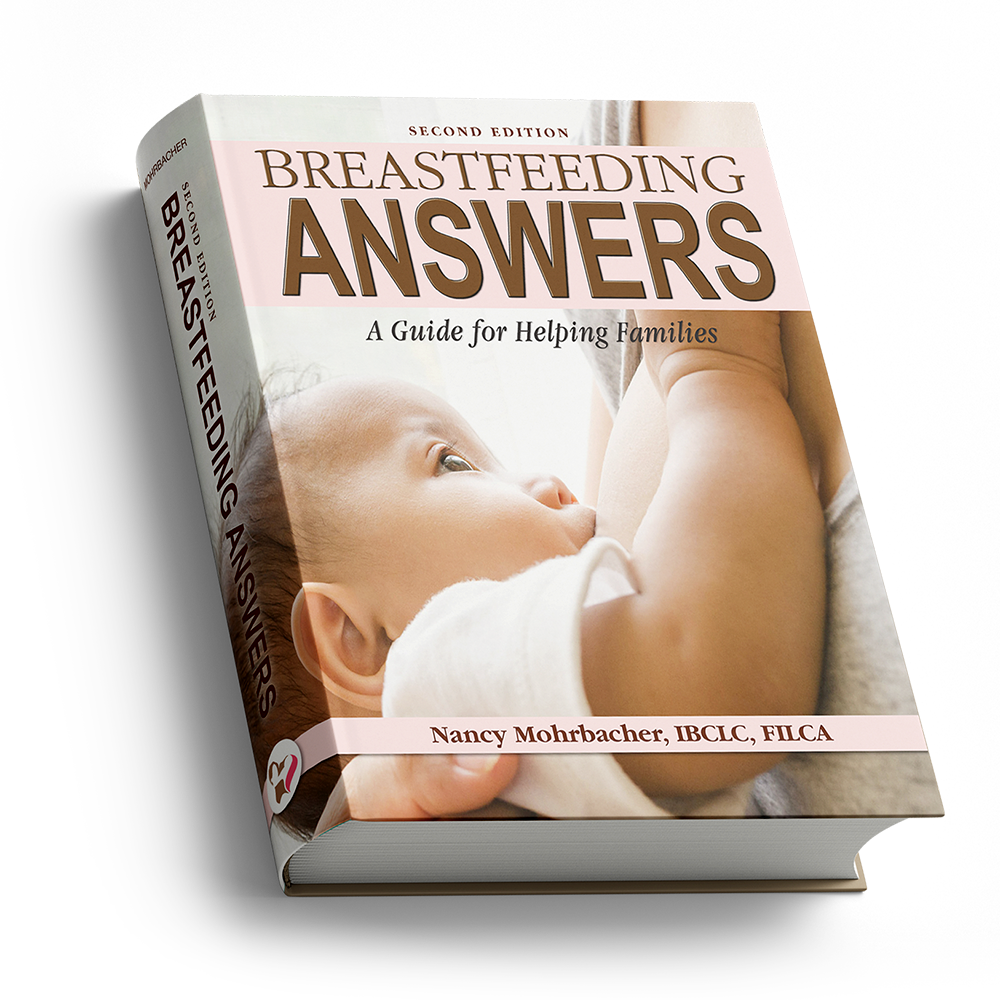Clicking During Nursing: What Does It Mean?
/When a baby makes clicking sounds while nursing, parents often worry. Is this a sign of a major problem? Should they be concerned? No matter what the cause, if nursing is comfortable, baby is otherwise healthy and gaining weight normally, clicking may not be a problem.
Common Reasons for Clicking
Most often, babies click at some feeds but not at others, which is not necessarily of concern. It may be a sign of a slightly shallow latch, which may cause baby to slip as she attempts to keep the nipple in her mouth. If clicking does not occur consistently, notice if it happens more often in one feeding position than another. In this case, taking special care to ensure baby gets a deep latch may be enough to reduce clicking.
Does clicking always indicate broken suction? No. There are other reasons for clicking. A very fast milk flow, for example, may trigger clicking as baby quickly swallows large volumes of milk. (When this is the cause, you probably hear the clicking only at the beginning of a feed as your milk lets down and not as much near the end.) If the baby seems otherwise fine, this is not a cause for concern. If baby struggles with the milk flow, though, try feeding positions in which baby nurses tummy down (see photo), which gives baby more control over milk flow.
Baby’s Palate, Throat, and Unsolved Mysteries
Aspects of a baby’s palate (roof of her mouth) may cause clicking. One example is the baby whose palate moves abnormally during feeds or is unusually high or has a bubble shape. Clicking during nursing may also happen in babies with a cleft—or opening—in their palate. Some clefts are not obvious, because they are located under a layer of skin (submucous clefts). Floppy skin in baby’s throat (specifically the larynx or pharynx) is another possible cause of clicking sounds during nursing.1 In this case, parents may hear clicking more often at inhale or exhale. If one of these anatomical issues is the cause, clicking would likely happen at most if not all nursing sessions. But changing feeding positions may reduce clicking.
Some parents never find the reason for the clicking. One mother told me her little girl always clicked, whether she was nursing or drinking from a cup. This mother simply attributed the clicking—which resolved after her daughter started kindergarten—to her being a “noisy eater.”
Frequent Broken Suction and Clicking
If broken suction causes regular clicking during feeds, this may repeatedly interrupt nursing. In this case, the baby may latch on and off frequently during feeds and may have difficulty nursing contentedly. Every nursing session may feel like a struggle. Or the baby may have unusually long pauses and spend time sleeping during most feeds.
Tongue-tie and Clicking
Tongue-tie (an oral variation that restricts tongue movements) is one of the many possible causes of clicking during nursing. In a tongue-tied baby, this sound may occur as the tongue snaps back with each suck. Keep in mind, though, that as one review article concluded,2 at most only about half of babies identified as tongue-tied have nursing problems. In other words, if a clicking baby with a tongue-tie is gaining weight well, otherwise feeding normally, and the nursing parent is comfortable, this is not necessarily a problem and no action may be necessary.
Among the 50% of tongue-tied babies who do have difficulty nursing, tongue movements are so restricted by the membrane connecting the tongue to the floor of baby’s mouth (the lingual frenulum) that the baby may struggle to latch and stay latched. Other problems common in this situation include nipple pain, weight-gain issues, and constant nursing. Any baby who repeatedly breaks suction during nursing at most or all feeds should be checked for tongue-tie, because this may affect the baby’s ability to transfer milk. In one Brazilian prospective longitudinal study of 109 babies, 14 with nursing problems related to tongue-tie and 95 controls,3 the researchers reported that 64% of the tongue-tied babies with feeding problems made clicking sounds during nursing as compared with 14% of the control babies.
Where to Seek Help
If your clicking baby also has nursing problems, such as slow weight gain, latching struggles, or you are in pain, it’s time to seek skilled lactation help. To find someone in your area, contact your birthing facility or your baby’s healthcare provider and ask for a recommendation. If your baby is doing well but you’re still feeling uneasy about the clicking, consider having baby checked by a pediatric ear-nose-and-throat doctor (ENT). ENTs are specialists trained to evaluate oral issues. In some areas, pediatric dentists have the training to evaluate issues like these.
Keep in mind that the most important thing is how your baby is doing. If she is healthy and gaining weight normally, regular clicking may simply be a sign of an oral variation and may not ultimately be a cause for concern.
References
1 Genna, C. W. (2017). The influence of anatomic and structural issues on sucking skills. In C. W. Genna (Ed.), Supporting Sucking Skills in Breastfeeding Infants (3rd ed., pp. 209-267). Burlington, MA: Jones & Bartlett Learning.
2 Power, R. F., & Murphy, J. F. (2015). Tongue-tie and frenotomy in infants with breastfeeding difficulties: Achieving a balance. Archives of Disease in Childhood, 100(5), 489-494.
3 Martinelli, R. L., Marchesan, I. Q., Gusmao, R. J., et al. (2015). The effects of frenotomy on breastfeeding. Journal of Applied Oral Science, 23(2), 153-157.




